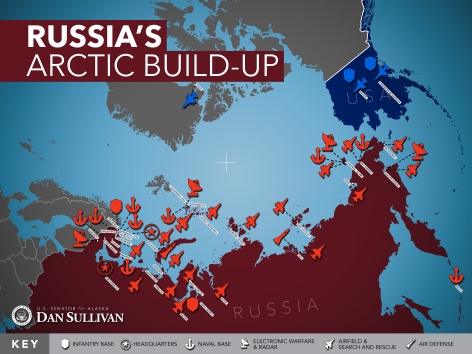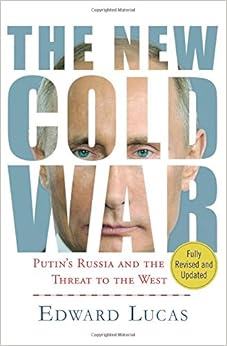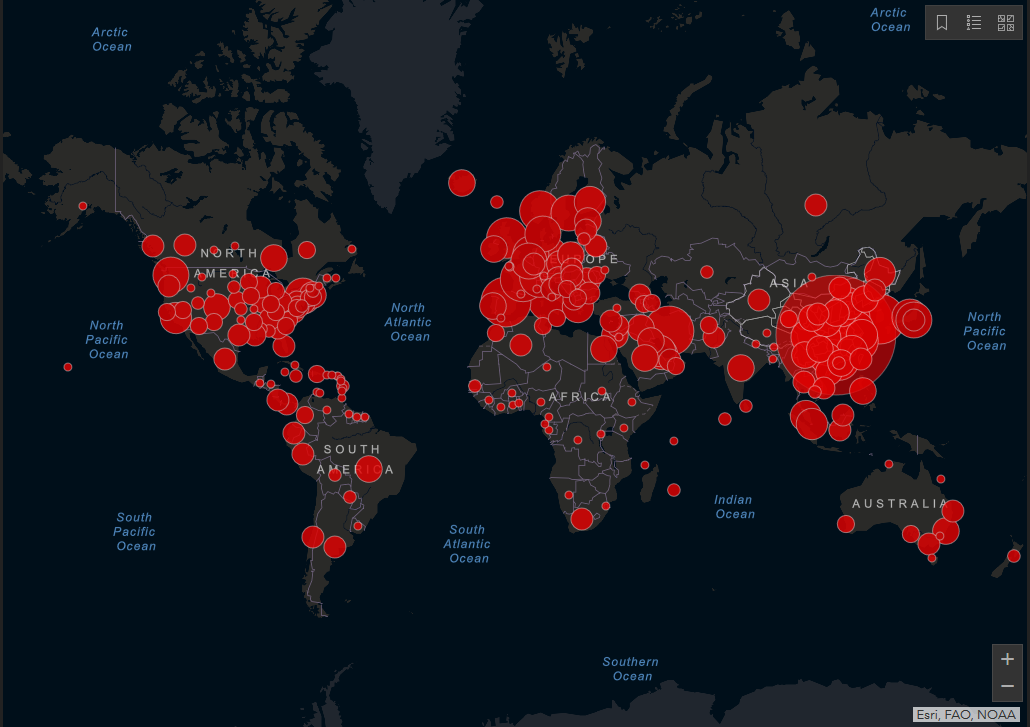> – Chavez Dispatches PDVSA’s Communist Boss and New Defense Minister to Moscow and Beijing
– Chavez Dispatches PDVSA’s Communist Boss and New Defense Minister to Moscow and Beijing
– Utilizing ALBA Front Company Chavez Helps Ortega Family Purchase Nicaragua’s Most Important Private TV Station
– Telenica News Host Resigns in Protest, Carlos Chamorro Son of Assassinated Newspaper Editor Pedro and Former President Violeta
Pictured above: On January 26 police and protesters clashed in several Venezuelan cities after RCTV International, which opposes President Hugo Chavez, was forced off air. The poster above says: “Chavez: You’re Struck Out.” In response to the protests, Venezuela’s communist dictator threatened to accelerate his country’s socialist revolution.
The Soviet strategists continue their stealthy process of reconsolidating linkages with Communist Cuba and neo-Sandinista Nicaragua, as well as expanding ties with the Communist Bloc’s South American showpiece, Venezuela. The Moscow-backed Bolivarian Alliance for the Americas (ALBA) also continues to consolidate linkages within that bloc of socialist states, minus Honduras, which escaped the clutches of the Havana-Caracas Axis several weeks ago.
On January 25 Ricardo Cabrisas, Vice President of the Cuban Council of Ministers, trooped to Moscow for a meeting with Russian Deputy Prime Minister, Igor Ivanovich Sechin, the Kremlin’s pointman for Latin America. During the Cold War Sechin, an agent of Russian military intelligence, facilitated the smuggling of weapons to leftist guerrillas such as the Farabundo Marti National Liberation Front, which now rules El Salvador.
During their meeting Cabrisas and Sechin prepared the agenda for the 10th meeting of the Cuba-Russia Intergovernmental Commission that will take place in Havana next April. Cabrisas and Sechin, who head the commission’s Cuban and Russian delegations, respectively, will look at the implementation of government credits and investment processes, as outlined in the resolutions of the ninth meeting of the commission. They will also examine bilateral cooperation in the cultural, education and technical-scientific fields, as well as in communications, computing, aeronautics, transportation, and industry.
Prior to the next conclave of the Cuba-Russia Intergovernmental Commission, Russia’s Foreign Minister Sergei Lavrov will carry out a two-day official visit to Cuba beginning on February 11. The visit was announced by the Deputy Director of the Latin America Department of the Russian Foreign Ministry, Victor Koronelli, before the Cuban-Russian Entrepreneurial Council, gathered at the site of the Russian Chamber of Commerce.
In a related story octogenarian Yevgeny Primakov, who has held various posts in the Soviet/Russian hierarchy, including KGB/SVR boss, prime minister, and foreign minister, attended a ceremony at the Cuban embassy in Moscow. There on January 22 Primakov, an expert Orientalist who liaised with Saddam Hussein in 1990 and then 2003, was presented with the Order of Solidarity by Cuba’s Council of State. In the awarding ceremony Cuban ambassador Juan Valdes Figueroa praised Primakov for being “a prominent politician and statesman, an astute diplomat, an experienced academician and a close friend of Cuba.” Valdes gushed: “Cuban authorities appreciate Primakov’s solidarity and honest friendship.”
For his part, Primakov noted that “on many occasions he talked for hours with comrades Fidel and Raul.” He then conveyed to the Castro Bros. his “most sincere appreciation for this order.” Primakov concluded his speech by assuring his Cuban comrades that through the Russian Chamber of Commerce “he will do everything possible to develop bilateral relations because he believes it to be very important, both for Cuba and Russia.”
A planned port of call by Russian warships in Havana Bay this past December, as far as we can determine, did not materialize. Otherwise, this would have been the second post-Cold War visit of the Russian Navy to Communist Cuba. The first occurred in December 2008, at which time Cuban President Raul Castro and brass of the Revolutionary Armed Forces of Cuba held a closed-door meeting with Vladimir I. Koraliov, Vice Admiral of the Northern Fleet.
The Russian Navy recently popped up in the news in connection with Haiti when Venezuela’s communist dictator Hugo Chavez, citing a report allegedly produced by the Northern Fleet, accused the US military of using a “shockwave weapon” to cause the 7.0-magnitude earthquake that devastated Haiti on January 12. Chavez and his communist buddies Daniel Ortega and Evo Morales have already condemned Washington for “invading and occupying” Haiti under the pretext of humanitarian relief.
Chavez’s outlandish conspiracy theory linking unconfirmed experimental US weapons to the Haiti quake initially appeared on Venezuela’s state-run ViVe television. Perhaps Comrade Hugo picked up his “information” from communist organ Pravda. There Lisa Karpova, who lately denounced Poland and the USA for deploying a Patriot Air Defense Unit to the Central European country, quoted the alleged report from the Northern Fleet. In her article Comrade Karpova notes, probably accurately, that the Russian Navy has been “monitoring” the reactivation of the US Navy’s Fourth Fleet in the Caribbean Sea:
The Russian Navy reports that the U.S. created the earthquake in Haiti.
The Russian Northern Fleet indicates that the earthquake that devastated Haiti was clearly the result of a test by the U.S. Navy through one of its earthquake weapons and drew up a diagram of linear succession in relation to earthquakes reported to have occurred by chance to the same depth in Venezuela and Honduras.
The Northern Fleet has been monitoring the movements and activities of U.S. Marines in the Caribbean since 2008 when the Americans announced their intention to reestablish the Fourth Fleet, which was disbanded in 1950, and that Russia responded a year later, with the Fleet led by the nuclear-powered cruiser Peter the Great “by starting its first exercises in this region since the end of the Cold War.”
As it stands, nearly 20,000 US troops, 1,000 Canadian troops, 800 Italian troops, and 12,000 international soldiers and police under United Nations/Brazilian command are already deployed or en route to Haiti to distribute food, water, and medicine, maintain law and order, and rebuild the country’s shattered infrastructure. Incidentally, Canada’s governor-general is Haitian born, which may partly explain that country’s relatively large commitment to the relief effort. More significantly, the growing presence of UN troops in Haiti may offer that organization a justification for honoring last November’s plea from Ciudad Juarez business leaders to send troops to help the Mexican army suppress the narco-insurgency in that city, which borders Texas.
One week before receiving the Cuban delegation, Moscow also welcomed a representative of another close ally in Latin America, Nicaragua. On January 18 Nicaraguan Deputy Foreign Minister Manuel Coronel Kautz met with Russian Deputy Transport Minister Sergei Aristov in Moscow. There the two parties once again discussed the subject of building a canal across Nicaragua, a century-old dream that President Daniel Ortega has resuscitated.
“The Nicaraguan side asked the Russian side to participate in the construction of the canal running across Nicaragua and linking the Pacific and the Atlantic Oceans,” commented a Russian Transport Ministry spokesentity. According to state-run Itar-Tass, the project will cost US$18 billion dollars. Aristov admitted that the concept of a “Nicaragua Canal” requires “further examination due to a change in economic conditions and the financial situation in the world.” In other words, the Kremlin can’t cough up all the cash for this project, so Moscow will probably organize a consortium consisting of Russia, Red China, and a few deluded, pro-communist Western Nepmen with some bucks to burn.
If the canal project falls through, however, Russia will find other pretexts to restore its baleful influence in Nicaragua, such as rehabilitating its never-used, Soviet-era military runway north of Lake Managua. The fact that open sources have yet to report the arrival of Russian military engineers at Punta Huete, after the proposal was first publicized in November 2008, suggests that Moscow is waiting for Comrade Ortega to first crush Nicaragua’s pro-Washington opposition, eliminate presidential term limits, and re-establish his communist dictatorship in earnest. With some help from red buddy Chavez, Nicaragua’s president appears to be doing exactly that.
Venezuela’s top commie thug has already been criticized for forcing six TV stations in his country off the air. The Central American media is now asserting that Chavez may have played a covert role in helping relatives of Ortega to purchase Nicaragua’s most important private TV station, Channel 8 Telenica, for US$10 million. Media outlets like Nicaragua Hoy, El Nuevo Diario, and Diario las Americas report that Telenica was purchased in part with funds from the ALBA front company Albanisa. This petroleum consortium consists of Venezuela’s state-run Petroleos de Venezuela SA (PDVSA) as the controlling shakeholder and Nicaragua’s state-run Petronic. Ortega’s family already controls several private news agencies in Nicaragua, not to mention the country’s state-run media outlets.
Earlier this month we reported that Albanisa chairman and Sandinista cadre José Francisco López Centeno stepped down from his post in the wake of charges that he embezzled 1.4 million cordobas from the company. Albanisa is now reportedly headed by interim chairman, Rafael Paniagua, a Venezuelan citizen. Last July the New York-based Committee to Protect Journalists contended that “Ortega had launched a personal war against media critical of his government.”
Until last weekend Channel 8 broadcast the programs This Week and Tonight, both hosted by well-known journalist Carlos Fernando Chamorro. Like many critics of the second Ortegista regime, Chamorro is a former cadre of the Sandinista National Liberation Front (FSLN), having edited Barricada, which served as the FSLN’s newspaper in the 1980s. On Sunday Chamorro announced that he was resigning from Telenica now that the company is controlled by the government. Carlos was quoted by Nica Times as saying during his last broadcast: “Today I ratify my position in front of Nicaraguan society that I don’t want to be a partner or collaborator with Mr. Ortega, either directly or indirectly, in any of his economic or political businesses that seek to help him whitewash his authoritarian image.”
Carlos is the son of newspaper publisher Pedro Joaquín Chamorro, who was gunned down in 1978 for criticizing the US-backed dictatorship of President Anastasio Somoza, and Violeta Barrios de Chamorro, who defeated Ortega in the 1990 election. Between 1979 and 1980 Violeta sat with Ortega on the multi-party Junta of National Reconstruction. However, there’s obviously some “bad blood” between the Ortega and Chamorro families.
Meanwhile, Chavez has dispatched his oil and energy minister Rafael Ramirez, a staunch communist who heads PDVSA, to Moscow and then Beijing to discuss plans for the trilateral development of heavy crude blocks in the eastern Orinoco region. “The group will work on advances in oil drilling [deals] with Russia and China in the Junin Block of the Orinoco oil belt,” the Bolivarian News Agency reported, citing comments from Chavez himself.
A preliminary joint venture deal on the Junin 6 block was signed in September between PDVSA and a consortium of Russian oil firms, including privately owned Lukoil Holdings and Kremlin-run Gazprom OAO. With the People’s Republic of China, Venezuela intends to develop the Junin 4 block, a US$16 billion project with the potential to produce 400,000 barrels per day. A government statement revealed that Venezuela also plans to build, with Red China’s participation, an electricity-generating plant that will be used for refineries.
Significantly, Venezuela’s newly named defense minister Carlos Mata will be traveling with Ramirez, possibly to discuss the shipment of Russian tanks and combat helicopters that Chavez is awaiting so he can advance plans to attack neighboring Colombia. Until recently 40 percent of Colombian exports made their way to Venezuela. However, the “mini Cold War” between the two countries, one socialist, the other capitalist, has reduced those exports by 38 percent and forced 30,000 Colombians out of work. “To find a solution,” reports El Universal, “the Colombian government is establishing partnerships with other countries to seek new markets, among them in Ecuador.” Establishing commercial links with Quito may not be the wisest move, though, since Ecuador’s socialist president Rafael Correa is closely allied with Chavez. Instead, Colombia should expand its economic relations with Chile and Honduras, both of which feature incoming center-right governments, as well as Panama, whose president, Ricardo Martinelli, is a businessman.





















